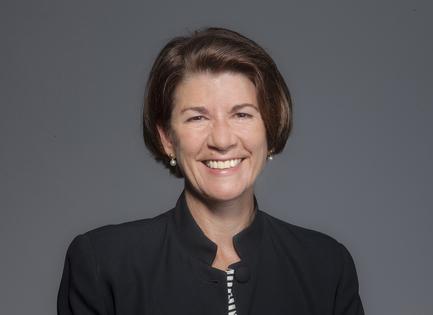Ask Amy: True friends are worth freezing for
Dear Amy: “Allie” and I became friends when our children were young. We celebrated holidays, vacationed together, and shared in our joys and troubles.
Allie is ambitious, friendly, and very extroverted, while I am quiet and introverted. It's natural that she has a larger circle of friends, most of whom I have also known for years. She's likeable and good at her work, but very status conscious.
I have been a supportive, discreet friend. When she went through some painful years of family estrangement, mine was her surrogate family for holidays. When she needed babysitting help, I kept her kids.
For several years, we invited (and paid for) her family to join us on vacation. She was happy to join, but played on her phone and constantly texted friends at home, making plans for when she returned.
Last year, she asked my husband and son to mow her lawn when she was ill, which they were happy to do.
Amy, I have been left out of friend trips, parties, and other events (where I knew everyone attending); I listened later while she related how much fun they’d had.
I felt hurt and upset plenty of times, but I never realized how one-sided this friendship seemed until recently.
I am not a perfect friend, but I have other meaningful friendships, and I don't think this one is worth more of my time, yet I am still wondering about it.
I think I’m ready to move on, but why am I harboring such animosity?
– A Friend
Dear Friend: As I write this, I just came inside from picking some daffodils during a late-season snow storm.
It occurs to me that there are some things – and some people – worth freezing for. And friendships have their reasons and their seasons.
Childhood friends fade from view. College besties scatter. Professional buddies vow to stay in touch after a job change, but don’t.
Friendships formed between parents when their kids are young are especially intense, but vulnerable, because these relationships are forged during the crazy days of playdates and sleepovers and emergency babysitting needs.
But after the kids grow up and out, you recognize that your parenting brought you together, but your kids were the glue.
You feel animosity toward “Allie” because in retrospect you realize that she has not been a good friend to you.
You fulfilled some of her social and physical needs; she occasionally reciprocated. That’s what friends do, but that’s not what friends are.
True friends are daffodils in the snow, and they are well worth freezing for.
Now that the season for this friendship has passed, you should move on.
Dear Amy: I have a good relationship with extended family and don’t want to jeopardize it. "Brian" is 15 years old. He is smart, good-looking, and very athletic.
The problem is that he picks his nose and chews with his mouth open, and his parents don't seem to care.
I would like to take him aside and say something, but I'm hesitant. I could mention this to his mother, but surely she has noticed.
Saying something to his older sister might be best, even though she's at college.
When we meet on Zoom, it's hard to watch Brian’s gross habits. I am worried that it affects how his peers and others feel about him.
Your advice?
– Up the Nose
Dear Up the Nose: If you see “Brian” picking his nose, you can wordlessly hand him a napkin or tissue. Just reach over and hand it to him, saying, “Here you go.”
You can even do this via Zoom. On camera, you can say, “Hey, somebody hand this to Brian.” And you hoist a tissue toward the camera, hoping that someone will take the cue and hand him a tissue on the other end. (I’ve offered tissues to people on Zoom when they sneeze, and it can be a fun visual gag.)
I would not take these issues to others. He’s 15. If you can’t deal with him lightheartedly and directly, then you should let it go for now.
Dear Amy: “Torn,” who is expecting her first child, says she is estranged from her mentally and physically abusive mother, but then asks you what she “owes” her mother.
Why do people who were abused and neglected growing up feel they owe their parents anything?
– Don’t Understand
Dear Don’t: Adult survivors feel this way because they are confused and sometimes wracked with guilt over their parents’ behavior. They don’t know what “script” to follow, because they’ve been denied emotional and physical nurturing.
========
(You can email Amy Dickinson at askamy@amydickinson.com or send a letter to Ask Amy, P.O. Box 194, Freeville, NY 13068. You can also follow her on Twitter @askingamy or Facebook.)
©2022 Amy Dickinson. Distributed by Tribune Content Agency, LLC.


















Comments